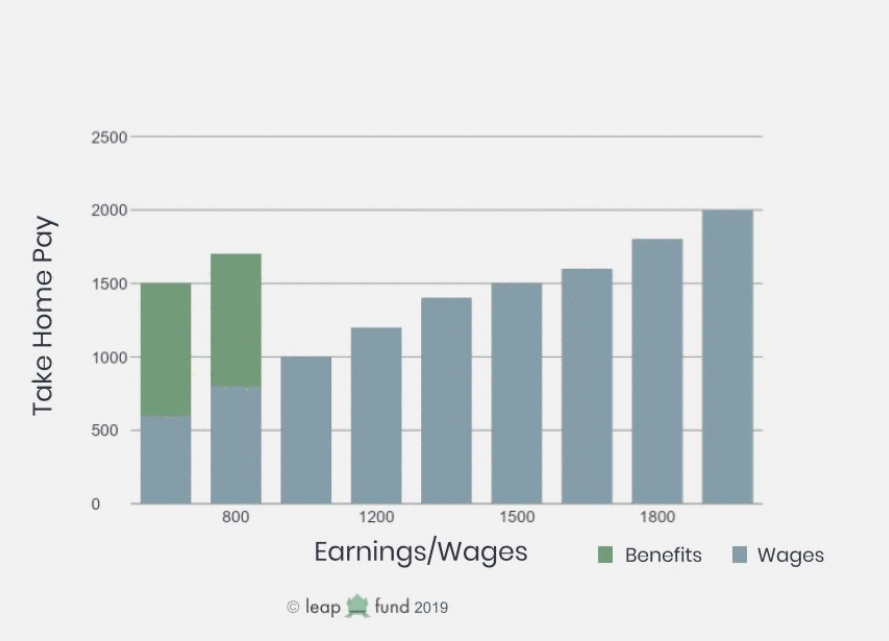The unemployment rate in Augusta in steadily dropping, but a dynamic under the surface is barring thousands from even looking for a job.
According to Cal Wray of the Augusta Economic Development Authority, of the approximately 202,000 people in Richmond County, 34,000 are not in the labor force and not looking for a job. These are people aged 15-64 who are not institutionalized and not actively looking for a job.
Wray said that while the rate of unemployment in Augusta is trending down, that number of people not actively searching for a job is not even counted in unemployment numbers.
In fact, Georgia Labor Commissioner Mark Butler said on Oct. 28 that Augusta recorded an all-time low unemployment rate of 2.8 percent, down seven-tenths of a percent over the month. A year ago, the rate was 5.2 percent.
“We are seeing all-time low unemployment rates throughout the state of Georgia, reflecting an economy that is continuing to rapidly recover,” said Butler. “We are working with employers across the state to post, recruit and fill critical positions in preparation for a strong holiday employment season.”
MORE: Local High Schools, Technical Colleges Work in Tandem on Workforce Development
However, many are barred from entering into the workforce by a dynamic called the benefits cliff.
The benefits cliff, as defined by benefitscliff.com, occurs when people receive public benefits from the government, earn a raise at their job and then discover that they make too much money to receive the benefits. Without the government benefits, they do not make enough money to sustain themselves and their household with the work wages alone.

The issue in combating the benefits cliff is that the bar for each person’s livable wage level is a moving target, individualized based on one’s assistance from federal programs, their wages (if they are working) and their bills.
Again from benefitscliff.com, “Low-income workers are often forced to make conservative decisions for their lives, finances and families because of the threat and fear of hitting a benefits cliff. This means people receiving benefits are making decisions that include not taking pay raises, not taking on more hours at work and not advancing in their careers, regardless of whether they’re actually going to hit a cliff or not. The lack of transparency drives fear, which drives decision-making, which holds people back.”
In October of 2020, the Federal Reserve Bank of Atlanta conducted a study on how the benefits cliff affects lower-income workers, especially those from minority communities.
[adrotate banner=”20″]
According to the study from AtlantaFED.org, “Most of the major federal safety programs such as food assistance, childcare assistance and housing assistance are means-tested (that is, only individuals with income below certain thresholds are qualified). As low-income workers advance in their careers and earn more money, the amount of support from safety net programs decreases. This loss of means-tested safety net support is an effective marginal tax rate (EMTR) on income gains. High effective marginal tax rates mean that some workers have a financial disincentive to invest in their own human capital and advance from lower-wage work to jobs that lead to economic self-sufficiency.”
The Atlanta FED offered multiple possible solutions, one of which was having workforce development programs require strategies that financially support workers as they enter training, complete training, and start work after training, times when workers are likely to face benefits cliffs.
On spotlightonproverty.org, Susan R. Crandall and Olanike Ojelabi suggest increasing benefit amounts is essential for families to stay afloat given the rising costs of living.
“For example, policies that enable workers to continue receiving public benefits as they are transitioning to new jobs promote both work and family stability,” their piece reads. “Another option is to increase earned income disregards, which allow some earned income or work-related expenses to be excluded for purposes of determining eligibility and benefit amount.”
Wray said, “Part of it is getting the right skill set and training to our citizens, whether that’s technical school, a certification or on-the-job training. You get the people the skill set demanded by that better job with the wage that can help push them past the benefits cliff.”
One such avenue of training that Wray is directly involved with is the cyber WorkForces program at the Georgia Cyber Center.
MORE: WorkForces Program Prepares Veterans and Military Spouses for Success
The program is aimed at veterans or military spouses who are underemployed or unemployed. They’re encouraged to apply for this free-of-charge program designed to give them the skills and certifications they need to land jobs with cybersecurity and advanced computer skills in the list of requirements.
One applicant for the program was Charlotte Bryant, who became unemployed due to the pandemic. Her husband is a veteran and encouraged her to apply for the program.
“I heard about it and my husband said, ‘You’ve got to go for this,’ and I did,” Bryant said. “I was unemployed due to COVID-19, so this was something that could increase my skills with computers. It was of both professional and personal interest to me.”
Classes for the first-ever cohort took place in June 2021, and the second cohort began classes in October 2021.
Take the quiz from benefitscliff.com to gauge your knowledge about our country’s public benefits.
Tyler Strong is the Business Editor for The Augusta Press. Reach him at tyler@theaugustapress.com












